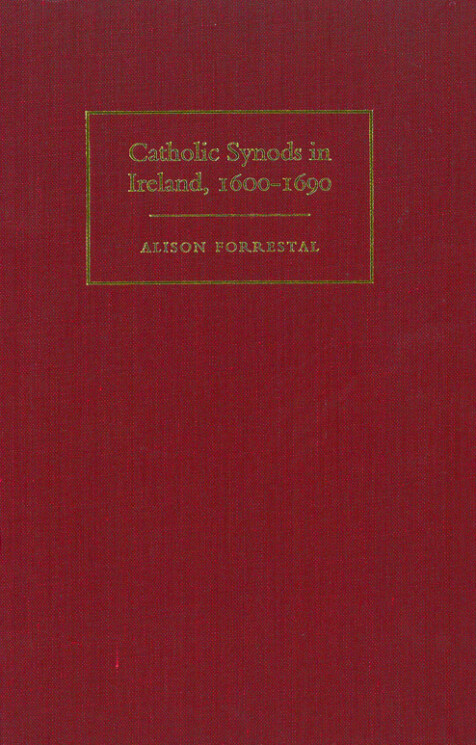The Catholic Synods in Ireland, 1600–1690
Alison Forrestal
During this period, 67 Catholic synods were held in Ireland, of which the records of 43 are extant. The factors and institutions influencing synodal policy are examined in this work. These are varied but often interconnected, and include the Catholic church, Protestantism and the state. Considerable sections are devoted to the influence of these upon official Catholic policy and to unique features of the Counter-Reformation in Ireland. The influence of specifically Irish factors, including socio-religious customs, persecution and inadequate clerical resources upon synodal policy is also examined, and an effort is made to gauge the objectives of the hierarchical leaders throughout the century, as manifested in their decrees.
The final chapter of the work is devoted to the practical application of synodal policy and to the correspondence of synodal thought with the thought and practices of ministering clergy. The book concludes that the mid-century decades gravely hindered the sustained progress of the Counter-Reformation in Ireland, and undid many of the achievements of the pre-1640 era. These had been in the realm of parochial organization, sacramental worship, clerical status and, to some extent, doctrinal instruction. Beginning almost from scratch in the Restoration era, the Catholic church in 1690 was no more advanced than it had been in 1640 in the areas of parochial sacramental administration and catechesis.
Alison Forrestal is currently completing a PhD in French ecclesiastical history at the University of Manchester.

